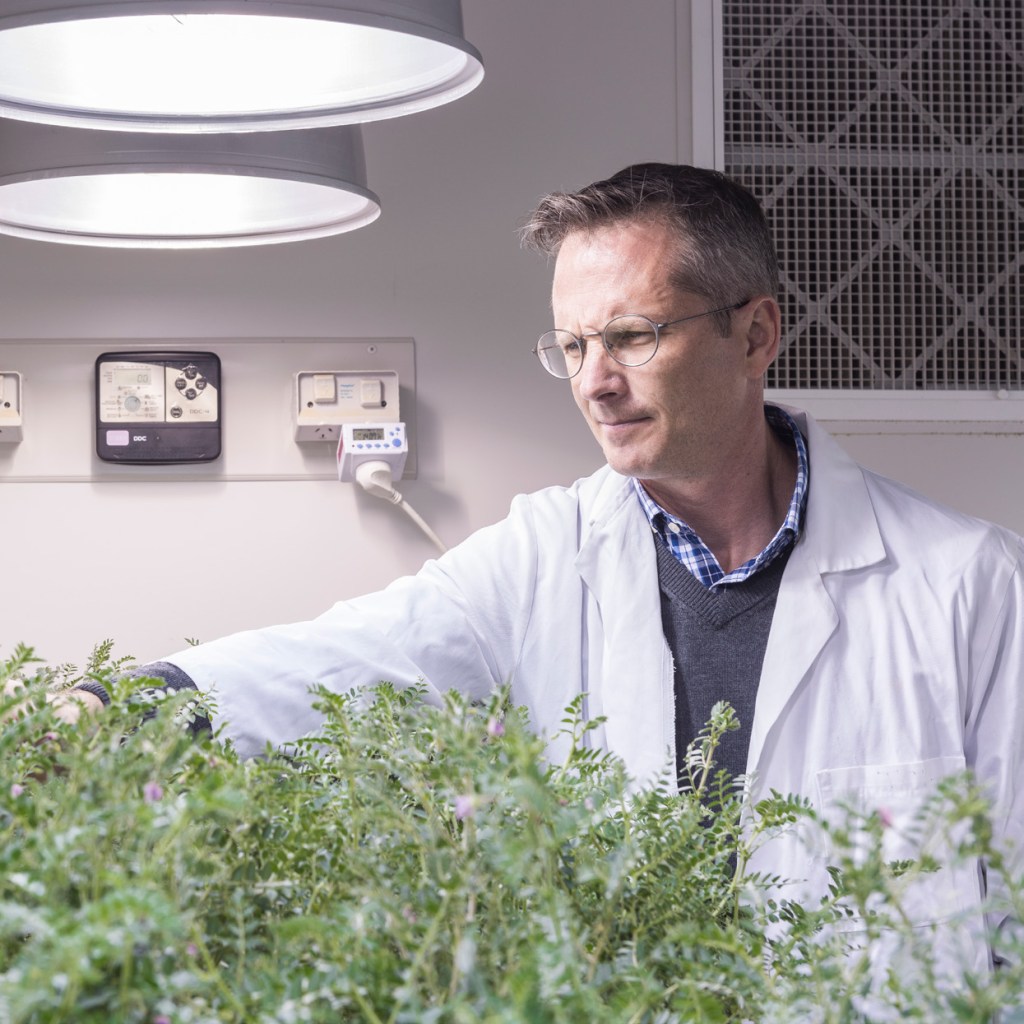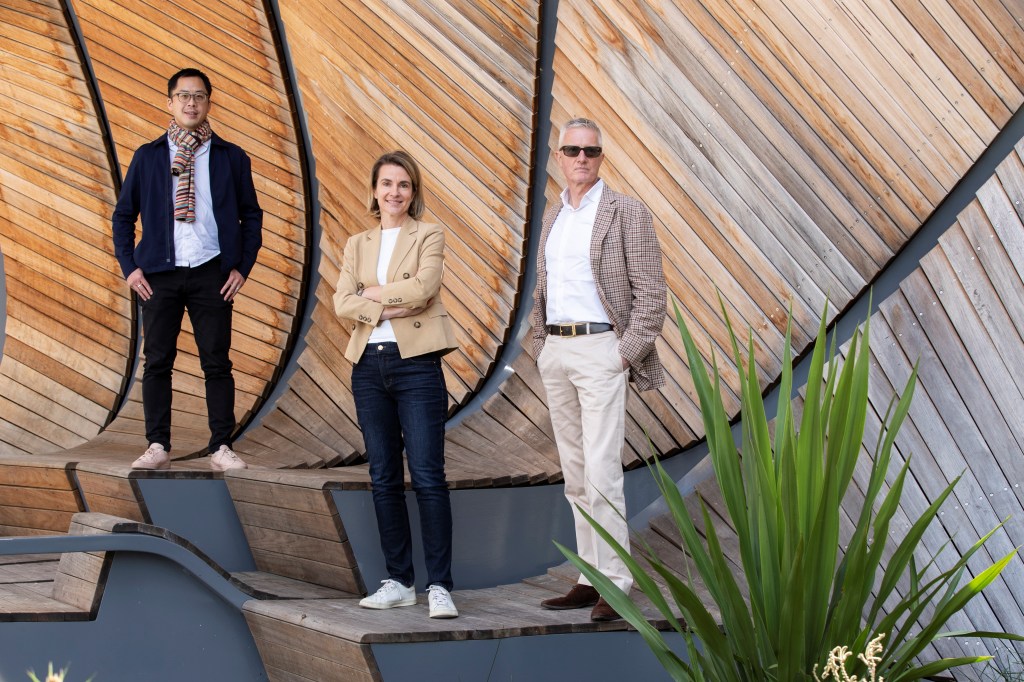What role does R&D play in the alternate protein sector, and what can be gained from connecting researchers with industry players? We asked Brent Kaiser, Professor of Legume Biology and Bid Lead at the University of Sydney’s Alt Protein CRC.
On 15 November, a range of stakeholders in Australia’s alternate protein sector, from academics and researchers to food manufacturers and government, will attend a first-of-its-kind Deep Dive event. The event will focus squarely on R&D, discussing what the industry needs to move forward, and identifying solutions for any existing skills, knowledge and research gaps. (View the program here)
Here, the University’s Brent Kaiser explains why we need to delve into the world of R&D, and what he hopes the Deep Dive event will uncover.
Can you explain what a CRC is?
A CRC or a Cooperative Research Centre is a program funded by the federal government to help build or develop a new industry that’s in need of significant R&D investment. So it’s a program that was set up to link industry with research providers such as universities, or state governments, or with the CSIRO, to conduct new research that helps that industry move forward.

Are you looking at the alt protein industry as a whole?
We’re looking at a wide range of different activities that are featuring in this new alternate protein space. So we recognise the traditional protein inputs which are often plant-based, but we’re also looking at different types of proteins that will come through fermentation or cellular-based generation systems, as well as mushrooms or seafood sources. Hybrid plant and animal protein foods are also on the table, so-to-speak.
The Deep Dive event in October is focusing squarely on R&D. Why did you decide to home in on that topic in particular?
There’s a lot of misunderstanding of what needs to be done to develop this industry, and the scale of research that needs to be done consistently over the next decade or so. The alternate protein sector is very technology-driven. There are a lot of different types of inputs on offer to create the alternate protein foods and the ingredients that we want to consume and appreciate.
We require focused research to bridge some of the technological gaps to produce, access and formulate the alternate protein foods that taste good and have nutritional and functional qualities consumers demand. This work will need to occur with traditional farm-based inputs and those developed in custom factories. Secondary enhancements including authentication tracking and supply chain efficiencies also come into the collection of R&D programs required in this new industry.
The event in November will aim to bridge those gaps, but it will also help us to understand where new gaps exist and how we might be able to get over them.
Who would you like to see attend the R&D event?
I think groups that are interested in developing alternate protein foods would benefit from attending. They will get clarity on the types of investments in R&D that will be required to help establish this industry and ensure its long-term success.
I’d like it to attract people from government who have responsibility in coordinating this new food industry, and the researchers who have an interest in developing this new industry and also have the capabilities to offer new ways of doing things. There are many different types of research that can be applied to produce the food, to distribute it, to sell it and to establish the business models required for this new industry to grow.
Collaboration is really key in this industry. Is that another focus area for this event?
I think so, because it’ll bring people together and be able to identify where there’s capacity to meet industry requirements. It’s very expensive to do R&D, particularly if you’re a new start-up that has to invest in the basic infrastructure of equipment and materials to actually do the research, and then there’s the labour and the time to make it happen. So bringing universities and various research entities in the same room with industry partners is an ideal way to identify where there might be potential partnerships and collaborations, and where there are mutual interests. Then we can get the universities and the resources focused on supporting this new industry as it moves forward.

Do you think the event will be equally relevant for the more established industry players as it will for start-ups?
I think everybody’s on the same path in the context of R&D development in this space. They are still finding their feet in how to develop new foods and how to identify the taste or the functionality of alternate proteins. Most of the research that has been conducted so far is traditionally older research, and it’s being applied to this new industry. There’s definitely a need for new intervention, new invention and discovery to move it forward and take it to the next level of acceptability and adoptability.
What do you think the industry needs to allow it to reach its potential quickly?
I would say it needs to coordinate the supply of inputs that go into the foods that we are consuming now and want to sell into the future. Currently, we have a range of plant inputs on offer but also new proteins developed in factories or redirected from existing food industries, such as mushrooms and animal proteins. Providing these in the appropriate scale and quality remains a challenge.
There is a requirement for processing and manufacturing capacity to facilitate the movement of high volumes of protein ingredients through a new food supply chain. Those activities are still growing and need to grow quite significantly to allow this industry to establish itself domestically, but also to be able to compete on the global market.
It also needs a recognition by the general public that this is a new type of food that is not going away, and it will continue to increase and expand on grocery shelves and be a significant component of most people’s daily food intake.
The R&D Deep Dive event is supported by the NSW Government.
BUY R&D DEEP DIVE EVENT TICKETS
To stay up-to-date on the latest industry headlines, sign up to Future Alternative’s enewsletter.
Posted on:


